Bin tagging
Bin tagging education program
Between May and July 2024 our Waste Busters team lifted the lid on yellow and green lid bins to visually inspect the contents. The program thanked and congratulated the growing number of residents who are doing a great job, and supported those who needed a helping hand by giving feedback on items that don't belong via postcards placed in letterboxes.

Over 2,600 FOGO bins and 2,900 recycling bins were looked at across Inner West houses. The results found that:
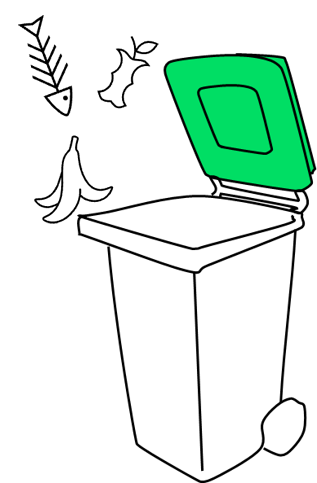
Almost
3 out of 4
households are using their FOGO bin to recycle food scraps.
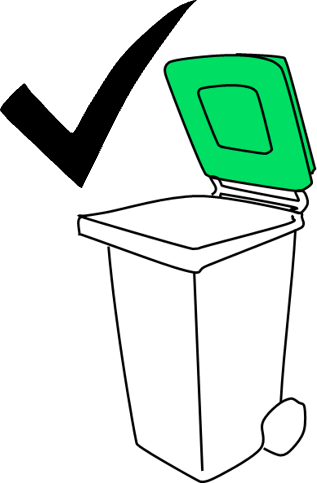
More than
90%
of households are using their FOGO bin correctly.
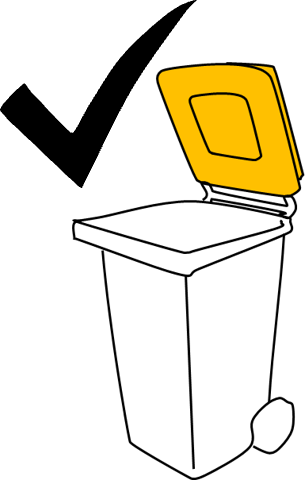
More than
70%
of households are using their recycling bin correctly.
FOGO
Although most people were getting it right, there were a few common mistakes. These are the top three items found in FOGO bins that should not be there. Do you have any of these items in your FOGO bin?
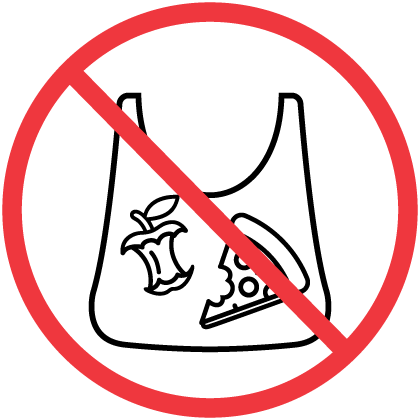
Food in plastic bags
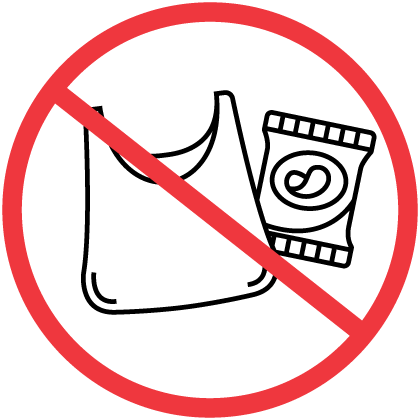
Soft plastic and loose plastic bags
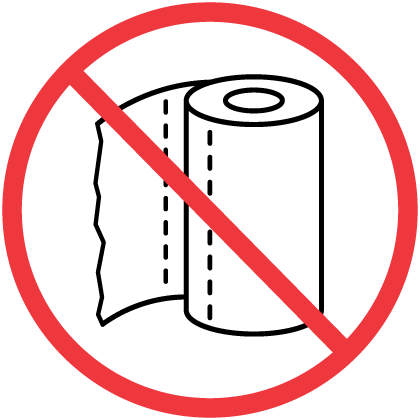
Tissues and paper towels
Recycling
Although most people were recycling right, there were a few common mistakes. These are the top three items found in recycling bins that should not be there. Do you have any of these items in your recycling bin?

Plastic bags and soft plastic

Tissues and paper towels
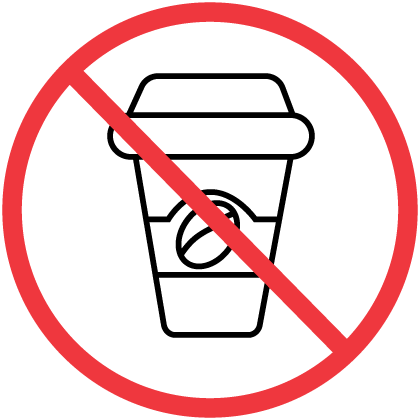
Takeaway coffee cups
Thank you
You may notice a congratulatory sticker on your FOGO or recycling bin. Once the Waste Busters completed the bin tagging program and looked at the data, we were able to identify which streets did the best overall. These streets received stickers on their bins and some feedback in the mailbox. Thanks for doing a great job!
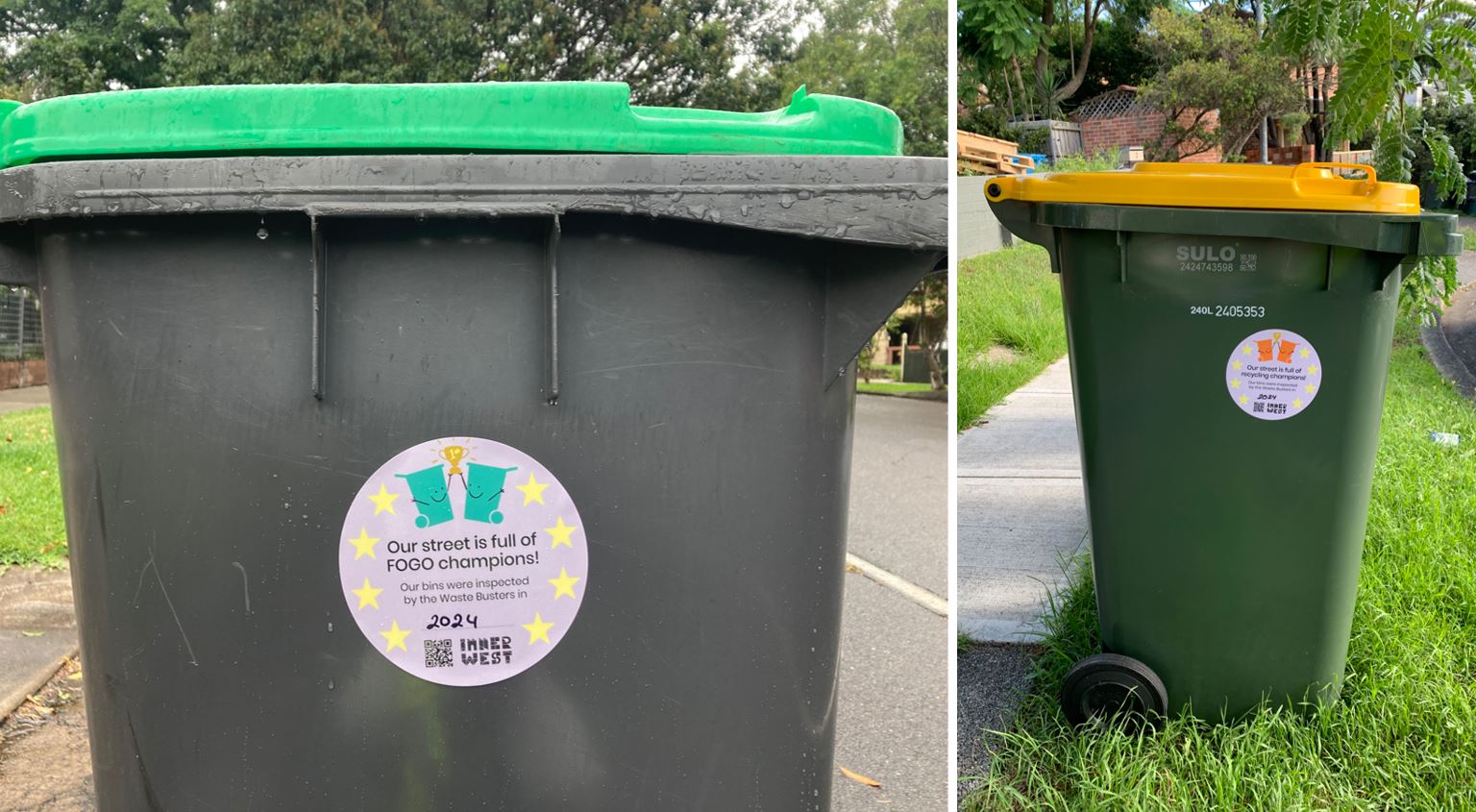
What do I do if I am not sure which bin an item goes in?
The Waste Busters would love to hear from you! Email wastebusters@innerwest.nsw.gov.au or call 02 9392 5303 and ask to speak to a Waste Buster. We can answer any questions you have about waste, recycling, FOGO or the bin tagging program. We also offer tailored waste consultations at your home or over the phone.